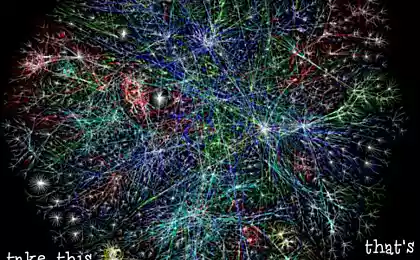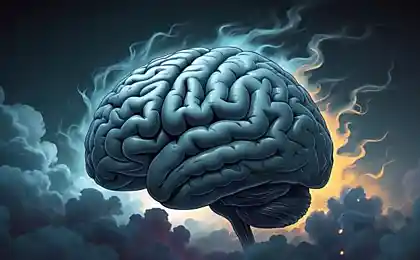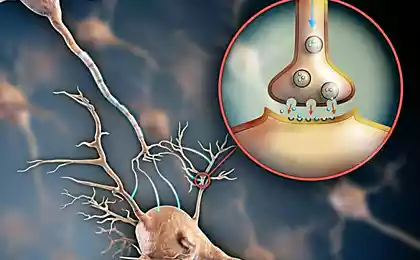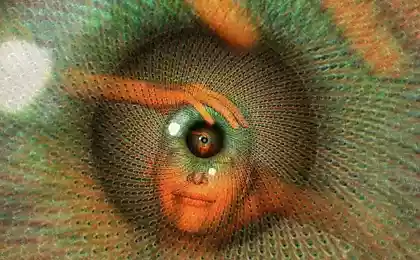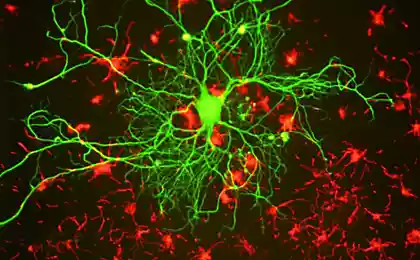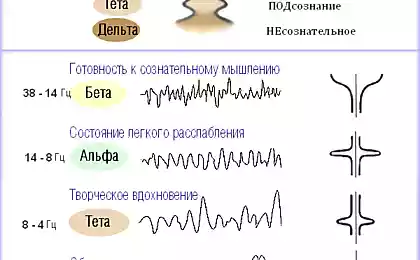651
7 dents who leave the Internet in our brain

around how the internet is changing the human brain, there are many phobias and stereotypes - from the forecast of general dullness to euphoria about the incredible abilities that are awakening from the trousers of sitting in front of a blue ekranom.No course hours spent for computer actually affect not only the habits of eating, drinking and moving, but also on how we think, feel and remember. < Website lists seven key points that drew attention to the expert edition of "Forbes" Arseniy Hahalin - neuroscientist and PhD
1.. Semantic salatInternet makes the information available, and we consume it on the go and in a hurry. We read on the go for lunch and instead of working. We use the Internet sporadically, causing materials on the Internet are becoming shorter, involving us in a vicious circle. The idea expressed in more than five lines, seems unusually long. We razuchaemsya concentrate us more difficult to read the book, because it has to compete with the scraps of news, texts, images, videos online in your left brain.
2. "Caesar" in TvittereSamoe not unpleasant that we read, and when we do it. Since the news on twitter or facebook status can be read in a few seconds, we are not doing this in a specially allotted time, and in parallel with other tasks. This is called "multiasking» (multitasking). The problem is that our brains are not designed for multitasking and at the same time trying to work and communicate with friends online is doomed to failure.
Trying to do several things at the same time, we make each one worse and more slowly than might.
3. Information as narkotikInternet gives more choice than books or TV. It is easier to find entertainment for the soul, to the same game it is likely to be packaged in small portions, each of which can be consumed in passing, along with other things. This is similar to the way a lover cuts eat small pieces of cake, not to reopen his conscience, until the entire cake is gone. This is partly why there is an overwhelming addiction to the internet in some people.
4. Autistic obscheniePo As the Internet increasingly takes place in our lives, we communicate more and more. The Internet has given an opportunity to communicate with disabilities, internally trapped in their homes; autistic, preferring to live text conversation; for single, went to distant lands. Communicate on the Internet easier and simpler not necessarily respond immediately (however, it is possible and does not answer); easier to hide emotions; easier to avoid uncomfortable situations. Virtual communication imposes increasing imprint on our lives
«offline." 5. Transparent stenyInternet changes related to the secret private life: information about us is becoming easier to find online. We easily blackmail (eg, after rash entries in with Facebook), tarnish (by spreading false information), it is easier to gain the trust (imitating other). The Internet makes people vulnerable - and what is more important for each of us on-line chat, the more painful it will be, if in that part of life that something goes wrong
6.. Replacement pamyatGoogle and "Wikipedia" makes possible the knowledge of the world is almost unlimited, but at the same time, the realization that information is always available online, affects how we learn and how we remember. As an oral account of lost relevance with the invention of the calculator, so now before our eyes is becoming less relevant knowledge of the facts. Why remember, if you can always find?
7. Home psihoterapevtEsche important to communicate on the Internet - an illusion of communication. Updating the status on Facebook or send us a tweet gives the listener the illusion of feeling that we someone interesting. To find a childhood friend happy and curious, but the real power of social networking sites is that they give people the illusion of connectedness with others. In most cases, however, it is a good, positive effect: long resume Linkedin does not harm us, and thus improves the egos
. via www.forbes.ru/tehno-slideshow/82774-shokshou/slide/1
Henry Ford paid repairmen for vacation, but not for work
20 cutest animals with whom we met recently
